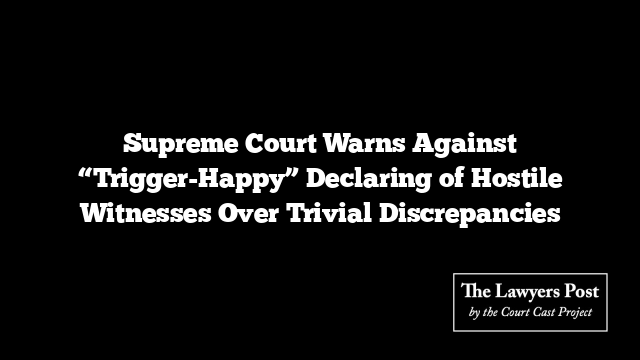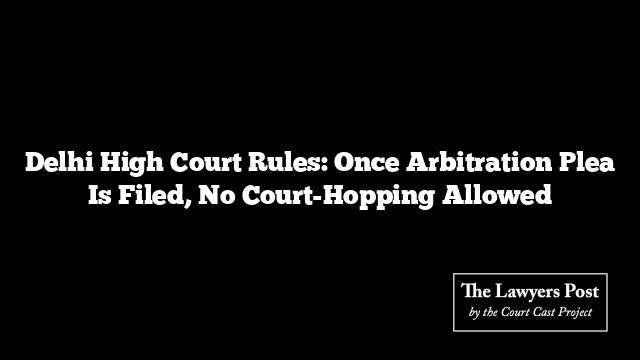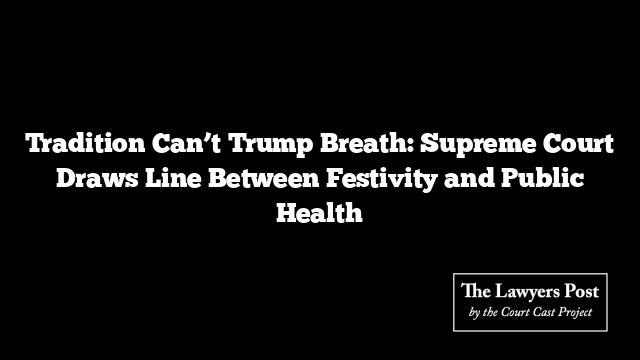In a strong rebuke to what it described as a growing “casual culture” in trial courts, the Supreme Court has cautioned against the hasty labeling of witnesses as hostile merely for minor inconsistencies in their statements.
A Bench comprising Justices BV Nagarathna and KV Viswanathan observed that such declarations should be reserved for exceptional situations — where a witness completely turns away from the prosecution’s case, gives false evidence, or clearly displays hostility to the party that called them.
The Court emphasized that discretion under Section 154 of the Indian Evidence Act (now Section 157 of the Bharatiya Sakshya Adhiniyam, 2023) is not a free pass. It must be exercised with precision, prudence, and a careful study of the circumstances, not as a reflexive tool in every case.
“We are frequently encountering cases where prosecutors, without clear justification, seek to declare their own witnesses hostile — and courts readily allow it,” the Bench remarked. “Before granting such permission, there must be tangible material showing that the witness is untruthful or has exhibited hostility.”
The observations came during an appeal involving a man convicted of kidnapping and raping a minor girl from a Scheduled Caste community. During the trial, the prosecution had sought to cross-examine the victim’s father — a witness who had largely supported their case — merely over a minor discrepancy about whether he had met the accused the day after the incident.
The Court expressed disbelief over this approach: “We are at a loss to understand why the victim’s father, who broadly corroborated the prosecution’s version, was declared hostile in the first place.”
Affirming the conviction, the judgment authored by Justice Viswanathan underscored that such discretionary powers must be used only in special cases. Relying on precedent from Sri Rabindra Kumar Dey v. State of Orissa (1976), the Court reiterated that cross-examining one’s own witness is justified only when the person shows real hostility, retracts a material statement, or clearly departs from the truth.
“Small or insignificant omissions cannot justify declaring a witness hostile,” the Court concluded. “Judicial discretion must be applied with circumspection, not convenience.”





